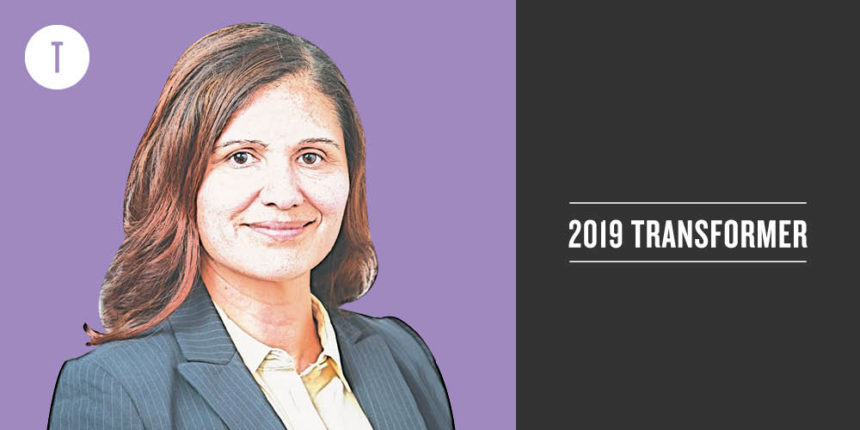You might say Lidia Fonseca has been solving problems since she was a little girl.
Born in Mexico, Fonseca moved to the U.S. when she was 10. “I learned to speak English by watching the news, soap operas and CHiPs,” she jokes. She called inner-city Los Angeles home, and credits her middle school English lit teacher for spotting her academic potential. “He encouraged me to apply to a magnet high school in the San Fernando Valley, so I had to take a bus 90 minutes each way.”
The long commute paid off. The education prepared her for UC Berkeley, where she earned her undergraduate degree. Sensing after college that data would be “the oil of the 21st century,” Fonseca switched career directions and headed not to law school, her initial intent, but to business school at Holland’s Rotterdam School of Management, the only B-school she could find that offered both an MBA program and a master’s degree in business informatics, a discipline combining information technology and management concepts.
These days her favorite problems to tackle involve harnessing data and technology to connect healthcare’s disparate patient, provider and payer audiences to coordinate care and drive efficiencies, “because healthcare is a team sport,” she explains.
Fonseca has seen the industry’s need for connectivity from several different angles, first with med device giant Philips Healthcare, where she led a global marketing team, then with the lab diagnostics industry, where she served as CIO for both LabCorp and most recently Quest Diagnostics, where she led tech, informatics and digital solutions. She arrived at Pfizer on January 1 to “lead a transformation effort.”
“You can have an impact on yourself, your team or your company, but when you can have an impact across an industry, it’s very attractive to me,” says Fonseca, explaining her motivation.
Working alongside new CEO Albert Bourla, whom she describes as having a keen appreciation for the power of digital to improve patient access and outcomes, her remit involves nothing less than transforming the pharma business model. “I’m a transformation agent by nature, and I enjoy taking on challenging missions,” she says. “The position here at Pfizer will allow me to work with my colleagues to move the industry forward.”
Fonseca’s combination of data and digital prowess along with big company management experience should serve her well. Her priorities involve instilling a digital mindset throughout the company; speeding up discovery and clinical development; improving diagnosis, treatment and adherence; upping efficiency among the firm’s network of sites and factories; and deepening engagement through the creation of compelling digital experiences.
“There are two kinds of companies,” says Fonseca. “Those that are born digital and those trying to become digital. If a company is older than 20, it’s trying to become digital. Pfizer is 170 years old, so we’re in the second camp, and this is true for the broader pharma industry, and even the healthcare ecosystem as a whole.”
From the May 01, 2019 Issue of MM+M - Medical Marketing and Media







